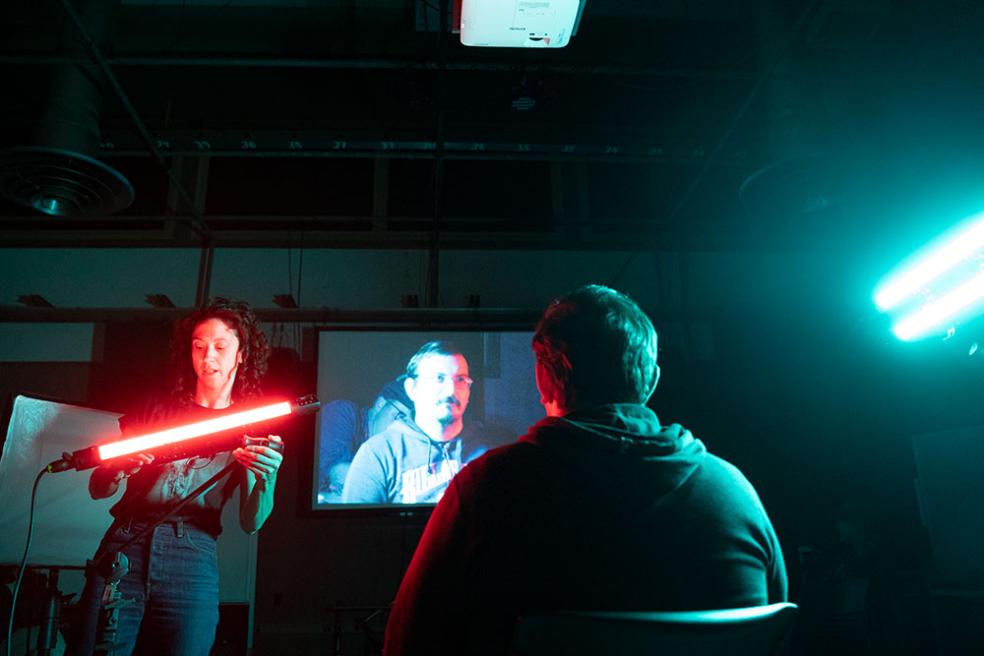
The Green Film School Alliance comprises 27 film schools across the nation committing to sustainable practices.
Dave Jannetta, Humboldt Film instructor, is a liaison for the program at Humboldt and says it dovetails with the University’s vision and values.
“Any size film set can be a fairly wasteful endeavor,” Jannetta says. “Students come here very conscious and committed to sustainability and environmental issues in general.”
The Alliance has developed a system based on film industry standards that allows student filmmakers to identify, act on, and review sustainable practices at each stage of the production process.
This can include a digital process, saving hundreds of printed pages in preproduction and a reduction in the harmful impacts of creating film.
The biggest changes can come during actual filming. “As you've seen in movie credits, hundreds of people can be on a movie set,” Jannetta says.
Paying attention to transportation and commuting, eliminating single use water bottles, and sourcing food locally are all things that productions can do to reduce their environmental impacts.
The Film department has also invested in green technologies, swapping out old lights for LED lights that use less electricity and often produce better results. The department will continue to work with the alliance, students, staff, and faculty to improve their practices and determine what works best.
This spring, students in Jannetta’s film production class will assign a green representative to each project, who will be in charge of implementing best practices and reporting about the production’s environmental impacts.
While these measures may be common sense, it’s important to instill these practices in students early, especially in the fast-paced and high-stress film production environment, where efficiency and cost-savings trump other concerns, Jannetta says. And by developing and improving sustainability in the industry, it will naturally become less costly and more efficient.
Even at a relatively small program like Cal Poly Humboldt’s these practices will add up. “Making a lot of little differences can actually amount to larger change,” Jannetta says.